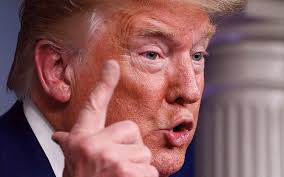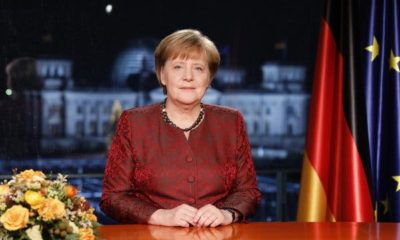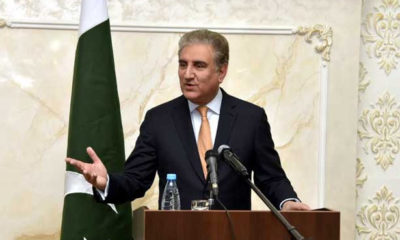World
Obama, Merkel discuss increased violence in Ukraine

Washington: US President Barack Obama and German Chancellor Angela Merkel discussed a significant rise of violence in eastern Ukraine during a call, the White House said.
The two leaders Tuesday expressed concerns about Russia’s material support for the separatists and its failure to fulfil its commitment under the Minsk agreement, and they agreed on the need to hold Russia accountable for its actions, as per reported citing White House statement as saying.
“They also agreed on the importance of finalizing a robust package of financial support for Ukraine to enable it to stabilise its economy as it continues to implement reforms that will lay the groundwork for a return to growth and prosperity,” said the statement.
Marked by Saturday’s shelling in the Ukrainian port city of Mariupol, which claimed at least 30 lives, situation in Ukraine worsened amid a new wave of escalation.
Russian Foreign Minister Sergei Lavrov said Monday that Moscow is taking efforts to revive the peace process in Ukraine.
“We are convinced that the peace process needs to be revived and necessary efforts are being taken for this, primarily to start a full-fledged, sustainable and direct dialogue between Kiev government and insurgents,” Lavrov told reporters after meeting with his Israeli counterpart Avigdor Liberman.
He blamed the West for “chronic custom” to accuse Russia and Ukrainian insurgents of everything that happened in the conflict areas, citing Saturday’s deadly shelling of the Ukrainian port city of Mariupol as a fresh example, which killed at least 30 people and injured almost 100 others.
World
Lockdowns in China Force Urban Communities to Defy Censorship and Vent Frustration Online

Shanghai’s rich middle class is leading a wave of online dissent over the strict and prolonged lockdowns imposed in various parts of the country. Chinese internet censorship is struggling as patience is wearing thin in many urban centers, coming up with creative forms of online protests.
Social Media Posts Revealing Lockdown Tension in Shanghai
Drawn-out lockdowns are nothing new in China as authorities insist with the nation’s zero-Covid policy since the start of the pandemic. Currently over This time around, however, metropolitan areas like Shanghai are increasingly difficult to keep quiet, given that its more than 25 million residents have seen weeks of total isolation along with food shortages and many other service interruptions.
Dozens of towns and reportedly over 300 million Chinese citizens have been affected by lockdowns of different severity. As expected, urban netizens have been most outspoken over their difficulties by finding creative ways to get around state censorship and bans placed on topics, news comments and spontaneous campaigns.
Shanghai residents have been using mobile proxies and hijacking seemingly unrelated hashtags to talk about healthcare issues, delivery failures and the overall severity of their situation. The “positive energy” that the Chinese government wants to transmit during the recent prolonged series of lockdowns does not come naturally to those counting food supplies and online censors are working hard to filter words, trending topics and undesired social media sharing.
WeChat groups and message threads are under constant monitoring. Posts questioning the zero-Covid approach have been quickly deleted, including by leading Chinese health experts like Dr. Zhong Nanshan. Video footage is soon censored and protests and investigations are quickly made to disappear.
Where this has not worked, officials have exposed banners with warnings and outright threats like “watch your own mouth or face punishment”, while drones have been patrolling the city skies. Yet, if anything, this has led to further tensions and unspoken confrontation with Shanghai’s educated and affluent middle class.
Creative Online Solutions Harnessing Civic Energy
Announcements by Chinese social media that they would be publishing the IP addresses of users who “spread rumors” have not helped either. Tech industry research has shown that much of Asia’s tech-savvy population has a habit of using mobile proxies and other privacy tools, quickly finding workarounds to browse the internet freely and talk to the world about the hottest topics.
The sheer volume of forbidden posts is already a challenge for the very censorship system, experts explain. Unable to track all trending hashtags, state workers overlook topics that speak about the US, Ukraine or other popular news. Linking human rights elsewhere to their situation, Chinese online dissidents establish their informal channels and “hijack” the conversation to share personal or publicly relevant information about the Covid suppression in their town.
Sarcastic and satirical posts still dominate. Others hope to evade the censors by replacing words from famous poems or the national anthem. One thing is certain – social media, when harnessed with the right creativity, has proven its ability to mount pressure on the government in even some of the most strictly controlled tech environments like China.























